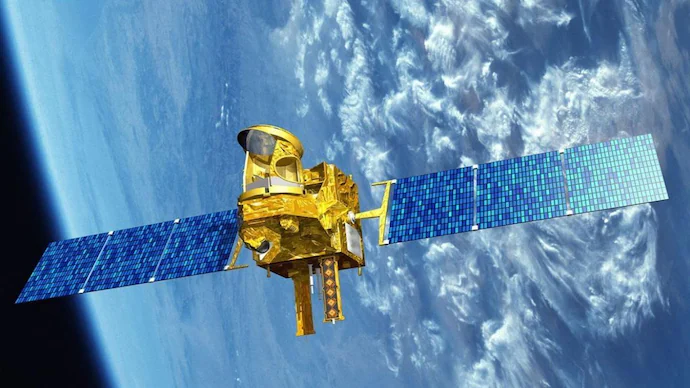India to Crash Satellite in Bold Move – Here’s Why It’s Necessary

Indian Space Research Organisation (ISRO) is all set to intentionally crash a satellite named Megha-Tropiques-1 (MT1) back to Earth on March 7. The spacecraft was jointly developed by ISRO and the French space agency, CNES, to study tropical weather and climate. It was launched in October 2011 and has been operational for more than a decade.
MT1 has been re-entered into Earth’s atmosphere to mitigate the risk of space debris and make Low Earth Orbit sustainable. The decision to crash the satellite was taken as per the guidelines set by the United Nations Inter-Agency Space Debris Coordination Committee (UNIADC). The guidelines state that the satellite should be deorbited at its end-of-life, preferably through controlled re-entry to a safe impact zone, or by bringing it to an orbit where the orbital lifetime is less than 25 years.
ISRO has selected an uninhabited area in the Pacific Ocean for the crash. Since August 2022, ISRO has performed 18 orbit maneuvers to lower the orbit of the defunct spacecraft progressively. ISRO also conducted aero-braking studies at different solar panel orientations to better understand the physical process of atmospheric drag affecting the orbital decay of the satellite.
“The final de-boost strategy has been designed after taking into consideration several constraints, including visibility of the re-entry trace over ground stations, ground impact within the targeted zone, and allowable operating conditions of subsystems, especially the maximum deliverable thrust and the maximum firing duration of the thrusters,” said ISRO in a statement.
The final two de-boost burns followed by the ground impact are expected to take place between 16:30 IST to 19:30 IST on March 7. Aero-thermal simulations have shown that no large fragments of the satellites are likely to survive the aerothermal heating during the re-entry.
ISRO stated that the re-entry experiment of MT1 has been undertaken as a part of the ongoing efforts to understand the associated operational nuances of post-mission disposal by direct re-entry into the Earth’s atmosphere. India has been vocal about the issues of space debris surrounding Earth and how it has made observations difficult and increased the risk of collisions in zero gravity.
